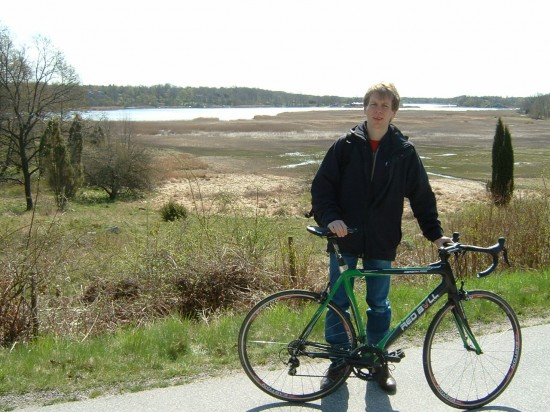Interview with Jakob Weber – PraTLA student at Energy Agency for Southeast Sweden
Interview: Lena Eckerberg

Hej Jakob! How did you find out about the PraTLA-Project?
To be honest, I´ve found out about PraTLA by incident. While I was looking for potential companies for an internship, I asked the Erasmus coordinator at my home University in Dresden (Saxony/ Germany) for a list of companies working in the field of environmental economics. Thus, I´ve got in touch with the Energy Agency for Southeast Sweden. After sending my application, the staff manager mentioned the PraTLA program.
What did you study and in which year?
Currently, I´m studying in the second year of my Master of Business Administration and most likely I will need another year to complete my last exams and write my final thesis. I have figured out that energy business and sustainability management are in my particular academic interest and consequently I was looking for a placement in this area.
Why did you choose to do a practical training at Energy Agency for Southeast Sweden?
The Energy Agency for Southeast Sweden is involved in local energy-related projects as well as European programs mostly covering various renewable energy sources. Apart from assisting local decision-makers regarding urgent energy issues, the Energy Agency also aspires to promote the utilization of renewable energy sources in general. This field of business immensely attracts my interest and corresponds with my field of study.
What did you do during the practical training?
During my internship (February to August 2012) I was involved in the European renewable energy sources Chains project and therefore with various renewable energy sources (RES). The scope of the project is to evaluate the entire value chain of energy from RES from various perspectives, such as environmental or economic ones. Among others the project includes “state-of-the-art” reports, feasibility and case studies for each energy source. Mostly, I´ve dealt with case studies but I was also involved in other components. In particular, I´m glad to get the chance to participate in two study tours regarding the use of biomass and urban waste for energy generation. That was a very valuable experience for me.
Which local energy or climate policy could be addressed or even improved?
I just encountered local energy strategy to a limited extent. What I can say is that the counties of Blekinge, where Karlskrona is located and Kronoberg, where the headquarters of the Energy Agency is located, seem quite progressive in employing renewable and sustainable energy supply concepts. I cannot make any proposals for further improvements.
Impressions from your practical training: What do you think were the advantages and disadvantages gained by the project?
Advantages
- Deep insights into biomass/ -gas energy
- Attending to biomass seminars
- Meeting international partners
- Characteristics of Swedish energy system
- Learning time management
- Learning Swedish conditions of employment
Disadvantages
- Failed learning Swedish
- Supervisor sometimes overworked
Did you get insights in the administration structure and processes from the municipal institution?
Since we are a relatively small office in Karlskrona and it´s just my supervisor and me who are involved in the RES-Chains project there is not that many coordination necessary. Indeed, I´ve got an insight into the administrative requirements of EU projects. In particular, because we are the lead-partner in the project there is a lot of organizational work to be done. Inherently, dealing with the project budget requires some effort.
Tack så mycket! Good luck in the future!





